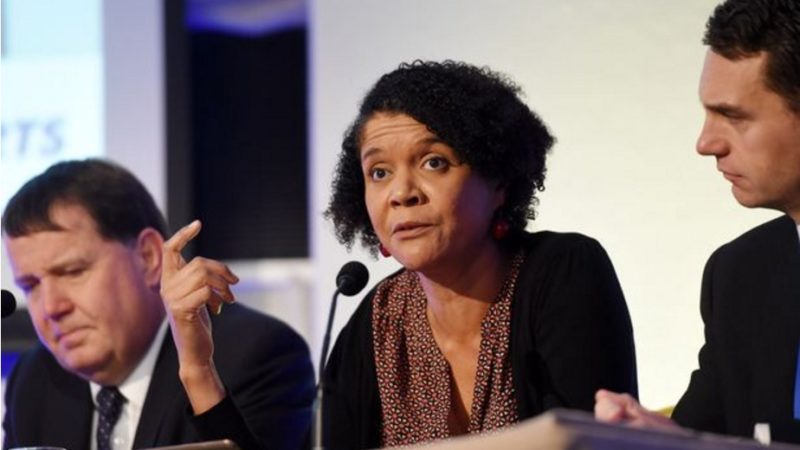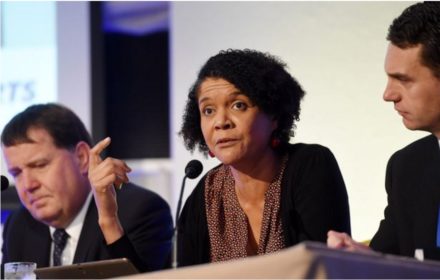

No party won a majority in the House of Commons last week, but Labour’s message won hearts and minds across the country. We gained seats from every other party, in every part of Britain, from Glasgow to Kensington. Here in the north east, we emphatically refuted the claim that the Tories were the “party of the northern working class” by increasing majorities and gaining seats such as Stockton South.
As a child growing up in Newcastle I benefited from a great comprehensive school, an affordable council house and a fantastic health service. That is how a poor, black, working class girl could get a fantastic job as an engineer and, later, Member of Parliament for my hometown.
Schools, housing, health, jobs: they are the drivers of social mobility and cohesion in this country. They ensure our country is not merely the plaything of a privileged few, but provides opportunities for the many. Labour’s manifesto was about strengthening our public services, expanding them where necessary and creating the economic growth and jobs to pay for them.
It was Labour’s manifesto which offered hope for the care worker I met door-knocking in Elswick, working 60 hours a week for less than the minimum wage. He would benefit from our overhaul of the care system and our introduction of a living wage.
It offered hope to the young single mother from Benwell who wanted to train as a forensic scientist but was told “no chance” by the job centre, you’re too old for a free education and too poor to pay for one. Our National Education Service, offering free adult education for all, would give her the chance she deserves.
It offered hope to the thousands of people who turned out in the pouring rain in Gateshead to listen to Jeremy Corbyn on the Monday before polling day. Young people, students, yes – but also those of working age, pensioners, people from all walks of life who wanted to see a fairer country. Some of them had never voted before, not because they were too young but because they had never been inspired.
And it offered hope to those disillusioned by the cynical scapegoating of migrants – we gained seats and massively increased our share of the vote with a manifesto that explicitly acknowledges the contributions of migrants – and we didn’t play games with the electorate by pledging an unachievable net migration target.
The Tory campaign, on the other hand, was relentlessly negative and unimaginative. It may have been a gaffe when Theresa May told a nurse on Question Time that “there’s no magic money tree” as a justification for the public sector pay cuts, but it was representative of the Tory attitude to the state.
The Tories have always found it difficult to accept the role of public institutions in creating a fairer country. Since 2010 they have systematically cut our welfare state and brought the NHS to the brink of crisis. This attitude continued even after the Brexit vote demonstrated the scale of social divisions in our country.
Theresa May stood on the steps of Downing Street last year and talked about building a “country that works for everyone”. But under the more rigorously regulated rules of election media scrutiny, this claim collapsed.
Her much-vaunted industrial strategy, as I have written before, barely mentioned industry and could hardly be called “strategic”. And the policy-lite Tory manifesto exposed her arrogance in thinking that a few honeyed words would be enough to attract Labour voters. The British people aren’t stupid, they want a programme that will materially advance their interests instead of condescending to them.
May’s advisor Nick Timothy acknowledged in his resignation statement that Britain is divided and too many lack opportunities but it’s clear that, for all May is promising to get the Tories out of the mess she made, she hasn’t got the answer to the challenges we face at either an individual or national level. She chooses to threaten the peace in Northern Ireland by going into coalition with the toxic DUP in order to cling onto power but she has yet to give the slightest indication of what she will do with power.
The stark truth is that you can’t promote social mobility or smart, sustainable and inclusive growth without investment in people and in public services and the Tories are unable to stomach that.
There is a narrative emerging that this election was a generation war, between Tory elderly and Labour young. But while our campaign was undoubtedly boosted by young people and students voting for a better future, it’s estimated that Labour won a majority of the votes cast by under 45s, and matched the Tory voteshare among 45-54 year olds.
We’ve crafted a positive message that inspired people of all ages and almost all backgrounds. We need to build on that message and make sure that our huge membership is ready to take it into every home in the country at the next election, whenever that may be.
Chi Onwurah is shadow minister for science, innovation and industrial strategy




More from LabourList
The cost of living crisis is still Britain’s defining political challenge
‘Nurses are finally getting the recognition they deserve’
Letters to the Editor – week ending 15th February 2026